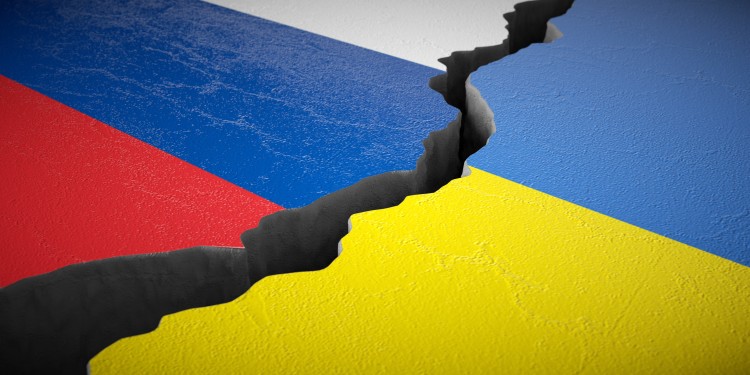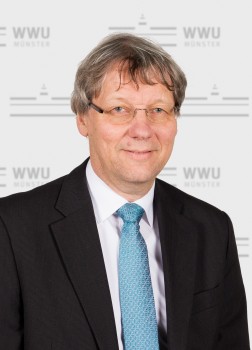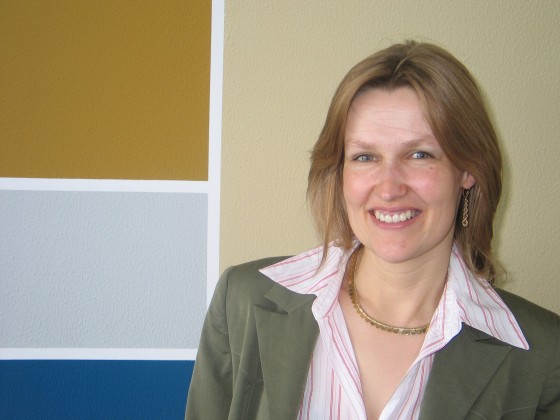
Münster University experts analyse war in Ukraine
Russia has attacked and invaded Ukraine. The world is shocked, unanimously condemns the invasion and imposes drastic sanctions on the government in Moscow. More than three millions people are fleeing, according to estimates. In the following guest commentaries, Münster University experts – Prof. Ricarda Vulpius and Dr. Vitalij Fastovskij from the Department of Eastern European History at Münster University’s History Department, Prof. Thomas Apolte, Chair of Political Economy, Prof. Doris Fuchs, Chair of International Relations and Sustainable Development, and Prof. Nexhmedin Morina, Chair of Clinical Psychology and Psychotherapy – analyse the effects of the war in Ukraine.
“A war of aggression against a militarily weaker country is a new phenomenon in postwar European history”

If the Russian Federation achieves military victory over Ukraine, it will put an end to the country as a sovereign political entity, it will change its constitution, it will cancel the Association Agreement with the European Union (EU) and it will try to bring Ukraine into the Eurasian Customs Union and – together with Belarus – into a revived “Pan-Russian” Union in the tradition of imperial nationalism. In this case, the Ukrainian people will in all likelihood engage in a guerrilla war, with those involved relating back to the partisan struggles during the periods of Nazi and, afterwards, Soviet rule in the mid-20th century. These struggles still, especially in Galicia, play an important role in popular memory.
However, in view of the will to fight shown by the Ukrainian army and population, and in view of the political unity of all regions and areas in the Ukraine and of the support shown by the west for the country’s defence, it is equally possible that Russia’s President Vladimir Putin may fail to achieve his overall military aims. What would then be conceivable is a scenario which leads to Ukraine recognising the annexation of the Crimea and relinquishing the Donbass region, but which at the same time secures political independence for Ukraine and opens up the possibility of its joining the EU in the medium term. A victory by Ukraine, without any loss of territory, would only be possible in the case of political convulsions within Russia as a result of the west’s sanctions and a subsequent withdrawal of troops.
In all three scenarios, what will happen is the opposite of what Vladimir Putin was aiming for with his war. After this war, any internal rapprochement by Ukraine with Russia will become inconceivable for at least the next 50 years. Permanent forcible occupation by Russia of such a large country is not possible. Ukraine will not disintegrate, because the war has unified the country as never before. And, last but not least, the process of rapprochement by Ukraine with the west will take on a hitherto unknown dynamic.
In the first two scenarios especially, Russia will be severely weakened economically, will be politically isolated from the west for a long time, and will turn to China to an even greater extent than before. If sanctions imposed by the west should lead to splits in the ranks of the elites and to a political coup or a military putsch, revanchism will probably continue to be an important political discourse for mobilising public opinion after the end of the Putin regime. Driven by a feeling of further humiliation, the country could continue to represent a great danger militarily for its neighbours.
Ricarda Vulpius is Professor of Eastern European and Eastern Central European History at Münster University; Vitalij Fastovskij is a research associate in the Department of Eastern European History at Münster University’s History Department.
“Without sales of raw materials, Russia would suffer financial collapse”

The second scenario is a militarily successful occupation of Ukraine by Russia, connected with the removal from power of the current Ukraine government. In this scenario, there will be a long-lasting conflict situation and the economic isolation of Russia in Europe and the rest of the world. The consequences would be devastating – not only for the Ukraine but also, and especially, for Russia. Seen from the other side, Russia has only a low level of importance as an export market for western European countries. Only 1.9 percent of German exports, for example, go to Russia. Exports to Switzerland alone are, at 4.4 percent, more than twice as high. True, Germany gets a high percentage of its raw materials from Russia – but as far as gas is concerned, we are part of the closely integrated European internal market, which means that a large part of the oft-quoted 50 percent of German gas imports can be compensated for. In addition, Russia would suffer financial collapse if it were not able to sell its raw materials – which is why it would be unlikely anyway to stop supplies to western Europe. For this reason, the economic consequences of this scenario would be felt in western Europe, but they would be bearable.
This would not be true for Russia. Therefore, a third scenario is conceivable in which the current power structure under Russia’s President Vladimir Putin collapses. Because the power structures of dictatorships are complex and unpredictable as far as their stability is concerned, the likelihood of this scenario cannot be assessed with any degree of seriousness. If it should indeed come to this, and should this lead to peace being established soon in Ukraine, the sanctions could be rescinded step by step. Irrespective of whether this scenario would permit a new attempt at establishing a peaceful order in Europe, it does almost certainly point to the most favourable development imaginable from a political and an economic point of view. This is because, last but not least, it might preserve the Ukrainian – but also, and especially, the Russian – people from further disastrous consequences.
Thomas Apolte has the Chair of Political Economy at Münster University
“Russia’s invasion represents an enormous watershed in world politics”

It is not enough just to bank on renewable energy sources to reduce our dependency on Russia. New technologies, too, depend on certain raw materials, for example the so-called rare earths which Germany likewise has to import. So the best strategy to reduce German dependence on Russia and on authoritarian states in general, and to combat climate change, is ultimately one and the same: consume less energy! We can make the most effective contribution if we leave the car at home, turn the heating down a little and limit our shopping to what we really need. In doing so, we can send out a clear sign of solidarity and open up scopes for action in the political sphere.
Doris Fuchs holds the Chair of International Relations and Sustainable Development at Münster University and is the spokesperson for the Centre for Interdisciplinary Sustainability Research there.
“Wars leave deep physical and psychological wounds”

From research with war survivors from all over the world, we know that many survivors suffer from mental disorders even years following the war. These disorders comprise not only significant emotional and psychological distress, they are also accompanied by significant impairments in important areas of functioning. A systematic summary of current epidemiological studies on mental disorders in war survivors that we recently published suggests that around 25 percent of adult war survivors worldwide suffer from post-traumatic stress disorder (PTSD) and just as many suffer from depression. Half of those with depression also suffer from PTSD. As a comparison, the prevalences for PTSD and depression in the adult population in the European Union with no direct exposure to war-related events are two and seven percent, respectively. The experienced violence, the material destruction, the massive erosion of social cohesion and of individuals’ faith in society – and the engendered mental health complaints – make recovery healing difficult, both for the individual and for society as a whole. Recent global efforts have produced, however, effective concepts for helping war survivors in areas of former conflict or in host countries.
Nexhmedin Morina heads the Clinical Psychology and Psychotherapy Unit at the University of Münster.
